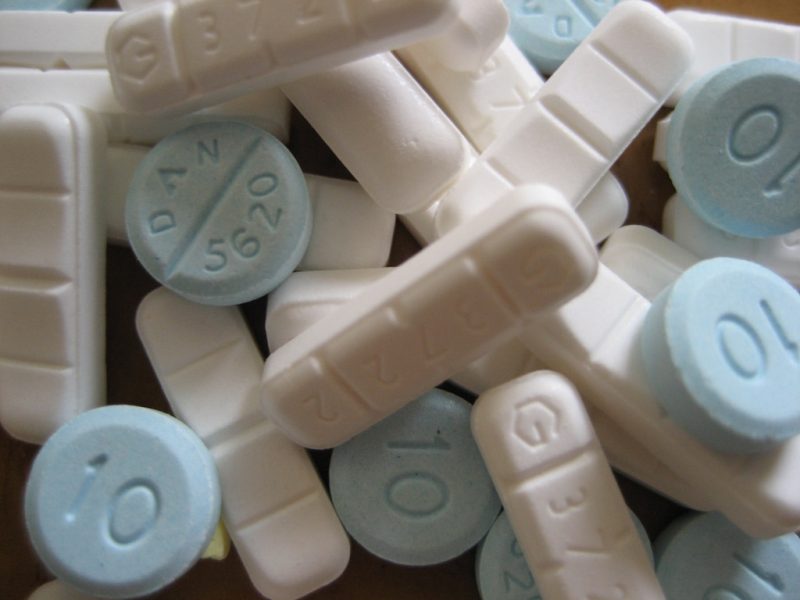
Free Life-Changing Technique for Veterans Affected by PTSD
November 8, 2017
Stress, Anxiety, and Depression- Dealing with the Imperfection of the Holidays
December 14, 2017What You Can Do to Help
There have been several alarming reports in the media lately about out of control prescription misuse, whether about pain-killing opiates such as oxycodone and fentanyl or stimulants such as Ritalin, Adderall, and other ADHD medications. Last year (2016), alone, the Center for Disease Control estimates that 64,000 Americans died from drug overdoses (mostly opioid related). Drug addiction and substance abuse is becoming a big problem in the states, if you are addicted or know someone who needs help, please visit this article about http://firststepbh.com/blog/drug-addiction-ft-lauderdale-serious-issue/. This represents a sharp spike in deaths from overdoses in comparison to previous years since 2000. Hearing that the number of deaths on American soil stemming from prescription opioid overdose has exceeded the number of fatalities in recent wars, leaves many of us in a state of numbed helplessness. Given the above, President Donald Trump, proclaimed at the end of October that we are in a ‘Public Health Emergency’ with the opioid crisis. Many people don’t understand why or how other people become addicted to drugs. They may mistakenly think that those who use drugs lack moral principles or willpower and that they could stop their drug use simply by choosing to. In reality, drug addiction is a complex disease, and quitting usually takes more than good intentions or a strong will. There are several ways to fight drug addiction, visit this article http://fherehab.com/news/humanizing-addiction/ and learn more!
Simultaneously, we are in a precarious predicament in our Naperville community where prescription opioid use is an undeniable risk factor for heroin use. Latest statistics show that 75% of heroin abusers started prescription opiates before their heroin use. Yet, we are faced with circumstances where medical professionals continue to prescribe opiates, often in an ongoing manner.
Given the above mindboggling facts, you may be wondering, ‘what can I do to help?’ The good news is that opioid addiction, widely considered a brain disorder, can be prevented, as well as treated successfully. First, you must be alert and aware of how you and your loved ones are using any prescription opiates. Addictions do not happen in a vacuum- they are often ‘enabled’ by others, including close family members. It would behoove us to safely store, even under lock and key if needed, one’s prescription opiates, especially if any family members are known or suspected as licit or illicit substance abusers.
Second, the public may safely and anonymously dispose of unused/expired prescription or over-the-counter medication through the City’s Prescription Drug Drop Box Program. Every Naperville fire station has a sealed drop box located outside of the building accessible to the public 24 hours per day, 7 days per week. There is also a sealed drop box in the Naperville Police Department lobby, accessible to the public from 7 a.m. to 8 p.m., Monday through Friday, and from 10 a.m. to 6 p.m. on Saturdays, excluding holidays.
The best preventative factor for drug addiction is positive social relationships where patience, love/affection, and mutual understanding and helpfulness are fundamental values. Research has shown that even when mice are given access to self-administered drugs along with a very ‘mouse friendly’ (plenty of companions, stimulating activities, and a mate, for example) environment, their drug use does not get out of control and lead to debilitating dependence.
However, if the ugly reality of opioid addiction has visited you, your family, friend, co-worker, etc. there is still much that can be done. Often it is the family that is most instrumental in getting their loved one to accept treatment. Individual therapy for post traumatic stress, couples, family, and group therapy, medication-assisted treatment for opioids (available from physicians), including methadone and buprenorphine, and recovery self-help groups, have all demonstrated usefulness in overcoming opioid dependence. One of the newer neuro-technologies, Brainwave Optimization, has also shown great utility in my practice as an overall part of a wellness program to overcome addictions and maintain healthy brainwave balance. Brainwave Optimization includes both in-office and at home mobile applications that greatly enhance one’s recovery. Results noticed from clients doing Brainwave Optimization are: reduced cravings, withdrawal symptoms mitigated, enhanced mood, calmness, improved sleep, and better focus and performance.
We can be hopeful about overcoming opioid dependence with all of the resources at our disposal in our Naperville community, including the many resources for individual, couples, family, group therapy, and Brainwave Optimization at Dunham Counseling Center.
Jeff Lucas, LCPC, CADC
Director
Dunham Counseling Center





